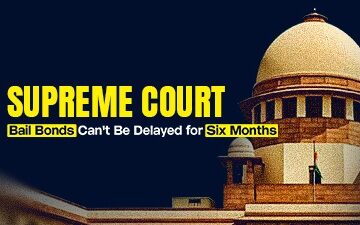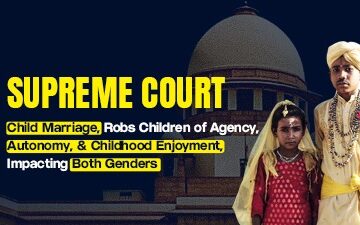The Supreme Court of India has reaffirmed a critical principle: a third party can file a Special Leave Petition (SLP) under Article 136 of the Constitution against the quashing of criminal proceedings. This landmark interpretation reinforces the judiciary’s commitment to safeguarding the rule of law and ensuring substantial justice. Below, we delve into the Supreme Court’s approach and the significant implications of this ruling.
What is a Special Leave Petition Under Article 136?
Article 136 of the Constitution grants the Supreme Court discretionary power to allow appeals against judgments, decrees, or orders from any court or tribunal in India. Unlike ordinary appeals, SLPs enable the highest court to intervene when a case involves a substantial question of law, miscarriage of justice, or a violation of legal principles.
The crux of the present ruling lies in determining whether third parties—those not directly involved in the original proceedings—have the locus standi to invoke this extraordinary jurisdiction.
Supreme Court’s Stand on Third-Party Intervention
The recent judgment builds on precedents and highlights the necessity of third-party intervention in exceptional cases, especially when public interest or judicial integrity is at stake.
Key Rulings Cited:
- National Commission for Women v. State of Delhi & Anr. (2010) 12 SCC 599
- Established that private individuals can file appeals in matters affecting broader public interests.
- P.S.R. Sadhanantham v. Arunachalam & Anr. (1980) 3 SCC 141
- A five-judge bench emphasized a liberal approach toward third-party appeals to promote substantial justice.
- Amanuallah & Anr. v. State of Bihar & Ors. (2016) 6 SCC 699
- Reiterated the Court’s responsibility to entertain appeals sparingly and with due vigilance.
The Case at Hand: MR Ajayan v. The State of Kerala & Ors.
The Supreme Court reviewed a case involving serious allegations of judicial interference. Here are the salient points:
Background:
- The case originated from a 1990 incident where Antony Raju, then a junior lawyer, was accused of tampering with evidence—a piece of underwear in a drug case.
- The Kerala High Court quashed the criminal proceedings but directed further investigation into the matter.
- A third party, MR Ajayan, challenged the quashing of proceedings, asserting public interest and the need for judicial integrity.
Key Issues:
- Does a third party have locus standi in filing an SLP?
- The Supreme Court ruled affirmatively, emphasizing that judicial processes must be safeguarded from interference.
- Public Interest and Judicial Integrity:
- The Court noted that tampering with evidence compromises public trust and erodes the independence of the judiciary, making it a matter of public interest.
Key Observations by the Supreme Court
- Public Interest in Judicial Sanctity: The alleged tampering of evidence highlighted systemic vulnerabilities, necessitating judicial scrutiny.
- Liberal Approach to Third-Party Appeals: Intervenors with a bona fide interest can advance substantial justice, especially in cases involving public interest.
- Implications for the Rule of Law: Allowing third-party intervention upholds the judiciary’s role as a guardian of fairness and justice.
Balancing Locus Standi with Justice Delivery
The Supreme Court clarified that locus standi is not an absolute bar, particularly in cases implicating judicial independence. This principle ensures that the doors of justice remain open for stakeholders genuinely interested in upholding legal and ethical standards.
Takeaways from the Judgment
- Strengthening Judicial Oversight: This ruling reinforces the judiciary’s responsibility to monitor and rectify lower court actions that threaten justice.
- Encouraging Public Vigilance: By allowing third-party interventions, the Court encourages vigilant citizens and stakeholders to act against systemic abuses.
- Preserving Rule of Law: Tampering with judicial processes undermines the foundations of democracy, and this decision acts as a deterrent to such actions.
Conclusion
The Supreme Court’s decision to allow third-party SLPs under Article 136 is a testament to its unwavering commitment to justice. By focusing on judicial sanctity, public interest, and fairness, the Court ensures that the rule of law remains robust. This ruling serves as a beacon for legal practitioners, policymakers, and the public, reminding all stakeholders of their collective responsibility to uphold justice in every sphere.


